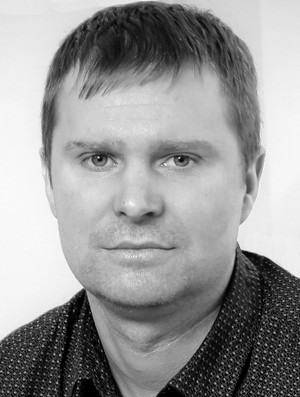Optimization of Training Process of Qualified Orienteerers Based on Innovative Methods of Sports Training
Фотографии:
ˑ:
D.N. Nemytov
postgraduate
Ulyanovsk state pedagogical university named after I.N. Ul'yanov, Ulyanovsk
Key words: foot orienteering, sports training, sprint distance, computer technology, young students, training process.
Foot orienteering is one of the most popular sports among schoolchildren and young students, and the elements of orienteering are included in the physical education curricula of the whole educational system. In particular in the Ulyanovsk region over 2 thousand senior schoolchildren and students attend orienteering sports sections, perform in competitions and get qualified.
Currently, at the global and European levels new formats of foot orienteering competitions have been introduced, in particular sprint distances, and in Russia the problem of training qualified athletes in the discipline "sprint" has been revealed.
Insufficient coverage of these contradictions in the scientific and methodical literature in the areas of sports training of qualified orienteerers, specializing in "sprint" is a serious gap of the modern training process, especially as the methodology of training of foot orienteerers in classical distances differs significantly from sprint sports training.
The purpose of the present study was to increase effectiveness of the training process in sports orienteering of qualified female sprinters via innovative methods of sports training.
In the present work the authors used innovative methods and methodological approaches from the range of technical and tactical training of qualified female orienteerers.
References
- Voronov, Yu.S. Educational technology of control of long-term training of young orienteerers: doctoral theis (Hab.) / Yu.S. Voronov. – Smolensk: SSAPhCST, 2009. – 488 P. (In Russian)
- Elizarov, V.L. The peculiarities of professional orienteerers / V.L. Elizarov // Problems of contemporary development of orienteering: Proceedings of the Rus. theor.-pract. conf. – Moscow: FCCYTLH, 2007. – P. 20-23. (In Russian)
- Kazantsev, S.A. Integral training of professional orienteerers: Ph.D. thesis / S.A. Kazantsev. – St.Petersburg: Lesgaft SPbSAPhC, 2005. – 145 P. (In Russian)
- Konstantinov, Yu.S. The 10th anniversary of world sprint / Yu.S. Konstantinov // Azimut. – 2012. – № 1. – P. 9-11. (In Russian)
- Nemytov, D.N. The content and parameters of the modern sports training of qualified sprinter-orienteerers / D.N. Nemytov // Physical culture and sport in the Russian educational system: innovations and perspectives of development: Proceedings of the Rus. theor.-pract. conf. with internat. participation. – St.Petersburg: Zolotoe Sechenie. – 2013. – P. 268-273. (In Russian)
- Ryzhenkova, N.V. The innovative methodology of phased control of physical and intellectual skills of orienteerers of different qualifications in a year training cycle: Ph.D. thesis / N.V. Ryzhenkova . - Smolensk: SSAPhCST, 2007. – 174 P. (In Russian)
- Orienteering: Programs for children's sport schools and specialized children's sport schools of Olympic reserve and for associations of extended education / Ed. by Dr.Hab. Yu.S. Konstantinov; Federal center of children's tourism and local history; the Russian Orienteering Federation. – Moscow: Sovetsky sport, 2005. – 216 P. (In Russian)
- Shirinyan, A.A. Modern training of professional orienteerer: guidance manual. - 2nd ed., cor. / A.A. Shirinyan, A.V. Ivanov. – Moscow: Sovetsky sport, 2010. – 112 P. (In Russian)



 Журнал "THEORY AND PRACTICE
Журнал "THEORY AND PRACTICE